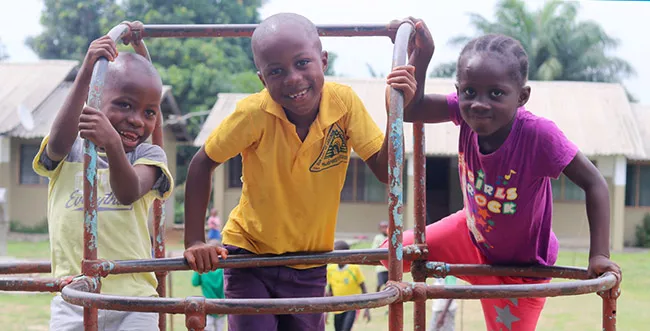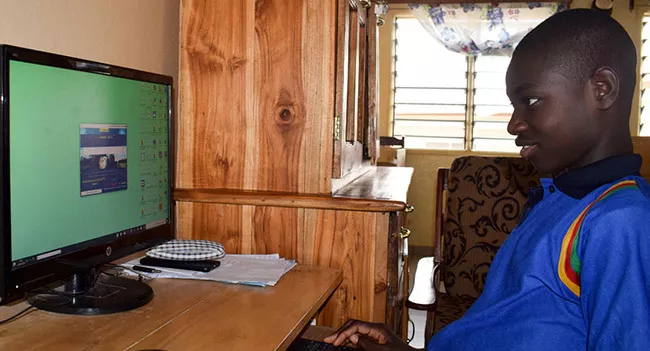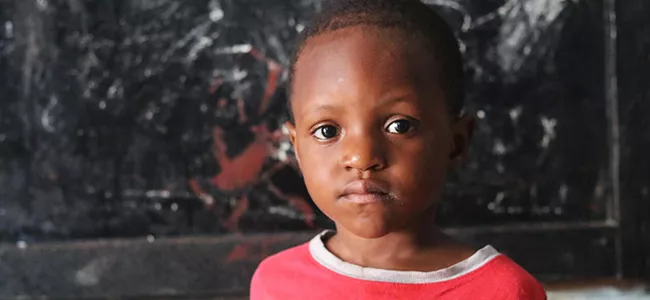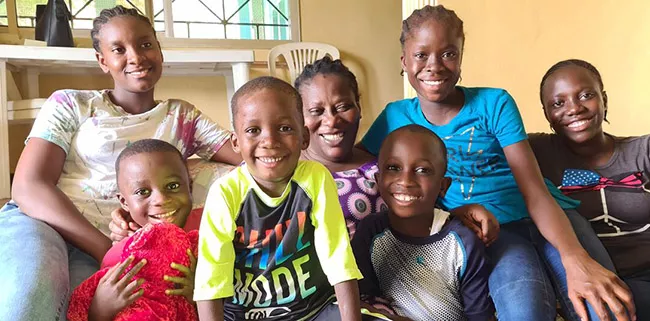Facing the education crisis head-on in Liberia: Business as usual is no longer an option
Education is a human right, a societal good, and a public responsibility.
Yet, 258 million children and youth globally do not attend school, 617 million children and adolescents cannot read or do basic math, and less than 40% of girls in sub-Saharan Africa complete lower secondary school, according to UNESCO’s recent global Futures of Education report.
“The need to bridge the gap and transform the young generation cannot be overemphasized. The burden for transformation must begin with us, teachers and school administrators,” says Victoria Harvey, Vice Principal for Instruction, Hermann Gmeiner School in Liberia.
Since the end of the Ebola Virus Disease (EVD) epidemic, significant progress has been made in student enrollment in Liberia. In 2015 alone, close to 1.4 million children in Liberia were registered in primary and secondary schools as compared to 150,000 in the 2013–2014 academic year.
Unfortunately, Liberia still has one of the world's highest levels of dropped-out school children, with an estimated 15 percent not in class. Meanwhile, just over 54 percent of children complete primary education (UNICEF).

SOS Children’s Villages in Liberia
SOS Children’s Villages has been a champion of children’s rights in Liberia for 41 years. To ensure that children stay in school and learn efficiently, last year SOS Liberia supported 889 children in 36 communities in Buchanan and Monrovia. Next academic year the figure will double. Which means even more students will have the opportunity to learn.

Jerry*,16, a grade 9 student, is one of the 203 youth in the SOS Liberia’s Youth Care Program. He is currently a student of the Hermann Gmeiner School in Monrovia. “Many children are not in school because their parents cannot afford to pay their fees. Some are in the street selling water between cars,” Jerry lamented.
Jerry had the opportunity not only to go to school but also attend computer classes, where he learned basic computer skills. “I feel good that I can help my friends do their assignments. It feels better to support those who need help most,” says Jerry. “Because of the support received, I also have basic computer knowledge,” he added.

Currently, SOS Liberia is partnering with 80 schools to promote child-friendly classrooms. It is also contributing to the educational sector through the Hermann Gmeiner School. Children and young people are being impacted, and lives are being changed.
SOS Children’s Villages education program encompasses early childhood care and development, and entrepreneurship training.
Business as usual is no longer an option
Although there is a good cause to celebrate the progress achieved over the past decades, we cannot lose sight of the many challenges children and young people still face every day. Access to education remains rare and COVID-19 exacerbated the situation.

“An investment in children and young people pays the best interest, and no one understands that better than SOS Children’s Villages. We work to ensure that children’s rights are protected,” says Augustine Allieu, National Director, SOS Liberia. We are also currently living in an unprecedented time and evidence suggests that COVID-19 is likely to derail decades of hard-won progress towards the rights of children and young people. “COVID-19 threatens the future of children and creates insecurity. In these exceptional times, business as usual is no longer an option,” Allieu added.
As a champion for children’s rights and protection in Liberia, SOS Children’s Villages believes there is a solution within reach. Education is an important tool to promote social good. Supporting children and young people is a powerful solution and response to this crisis.

*Name has been changed for privacy reasons.
_____________
About SOS Children’s Villages Liberia: SOS Liberia is a member of the SOS Children‘s Villages International Federation. Since 1981, SOS Liberia has been working to ensure that children grow up in a loving family environment and have their rights fulfilled. The organization is currently working in two locations in Liberia, Montserrado and Grand Bassa counties, with core programming focused on alternative care, family strengthening, and empowering youth.
